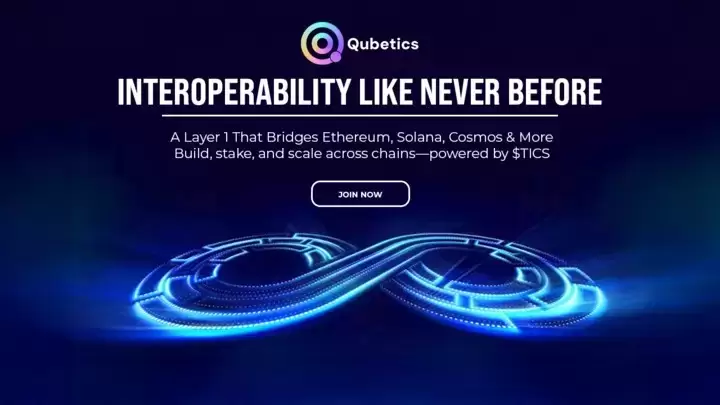 |
|
 |
|
 |
|
 |
|
 |
|
 |
|
 |
|
 |
|
 |
|
 |
|
 |
|
 |
|
 |
|
 |
|
 |
|
Cryptocurrency News Articles
Aptos (APT) Community Proposes Slashing Staking Rewards by Almost Half
Apr 19, 2025 at 03:47 pm
Aptos community member MoonSheisty submitted a proposal to slash staking rewards for the network's native token, Aptos (APT), by almost half.

Aptos community member MoonSheisty has proposed a slash in staking rewards for the network’s native token, Aptos (APT), by almost half.
The community-driven proposal, titled "Optimistically Slashing Staking Rewards to Sustainable Levels," suggests a notable decrease in staking rewards, aiming to adjust the annual yield for validators and delegators.
This adjustment of reward yields from 7% to 3.79% in three months is seen as a strategic step to ensure the long-term sustainability and economic balance of the Aptos network. It will also align Aptos staking rewards with other layer-1 blockchains and encourage capital efficiency.
Aptos proposal triggers debate over staking cuts and network decentralization
The initiative has drawn attention to X, though early feedback on GitHub from community member ElagabalxNode shows some pushback.
The commenter expressed concerns that slashing rewards without "compensatory mechanisms like a robust delegation program or community validator support will quickly sideline smaller validators." They add that this could ultimately undermine decentralization and long-term network resilience in the long run.
As part of the proposal, MoonSheisty also suggested establishing a community validator program to offer grants and stake support to smaller contributors. This initiative aims to foster a more inclusive and decentralized ecosystem.
Founded in 2021 by former Meta engineers, Aptos currently boasts a total value locked (TVL) of $974 million, according to DefiLlama. Of that, around $320 million comes from the lending protocol Aries Markets.
While high staking rewards help attract participants to secure the network, the proposal argues that they may inadvertently steer users away from riskier, potentially more rewarding opportunities such as restaking MEV (maximal extractable value), DePIN infrastructure, and broader DeFi applications.
Staking returns differ widely between networks. CoinLedger reports that BNB Smart Chain offers some of the highest real returns at 7.43%, while Cardano sits at the lower end with just 0.55%.
Much like savings account interest payouts, staking aims to give users tokens for putting theirs to work by locking them up and supporting network validators. But the rewards—paid in crypto—can vary in fiat value.
Aptos proposal is one of a number of recent evaluations of staking dynamics among blockchains.
In June 2024, Polkadot suggested reducing its time for unstaking to a mere two days. As of September, the Starknet community approved a new staking mechanism with a suggestion from Ethereum co-founder Vitalik Buterin to follow up on some things to get us closer to a hybrid PoS/plasma variant.
Staking grants users a meaningful role in network governance and security but also presents risks. Chief among them is the consolidation of staking power, which can centralize control and erode the decentralization blockchains strive to maintain.
Aptos uses a staking system with epoch-based rewards
Within the Aptos ecosystem, a staking system is utilized with ongoing epoch-based reward distribution. This structure guarantees that validators are incentivised according to their active participation and contribution to the governance of the network.
Aptos has a governance model that permits community members (who meet the minimum staking requirement) to propose and vote on proposed changes. This dedication also serves the goal of a decentralized decision-making process through inclusiveness.
However, as the community grappled with the consequences of slashing staking rewards, conversations about similar compensatory mechanisms began to surface. Details of how a community validator program would work are still being proposed and discussed to support smaller validators or help with network decentralization.
Disclaimer:info@kdj.com
The information provided is not trading advice. kdj.com does not assume any responsibility for any investments made based on the information provided in this article. Cryptocurrencies are highly volatile and it is highly recommended that you invest with caution after thorough research!
If you believe that the content used on this website infringes your copyright, please contact us immediately (info@kdj.com) and we will delete it promptly.
-

-

- A race against time for Ethereum scalability as the growth of layer 2 solutions threatens to saturate its processing capacity
- Apr 20, 2025 at 04:00 pm
- Since the introduction of the EIP-4844, Ethereum uses “blobs” as a low-cost storage mechanism to support L2 networks like Base, Arbitrum and Optimism.
-

- Jesse Pollak, the creator of Ethereum layer 2 blockchain Base, apologizes for the controversial artwork
- Apr 20, 2025 at 03:55 pm
- Jesse Pollak, the creator of Ethereum layer 2 blockchain Base, has apologized following backlash over posting digital artwork that controversially played on Base's tagline, “Base is for everyone.”
-

-

-

-

-

-





























































